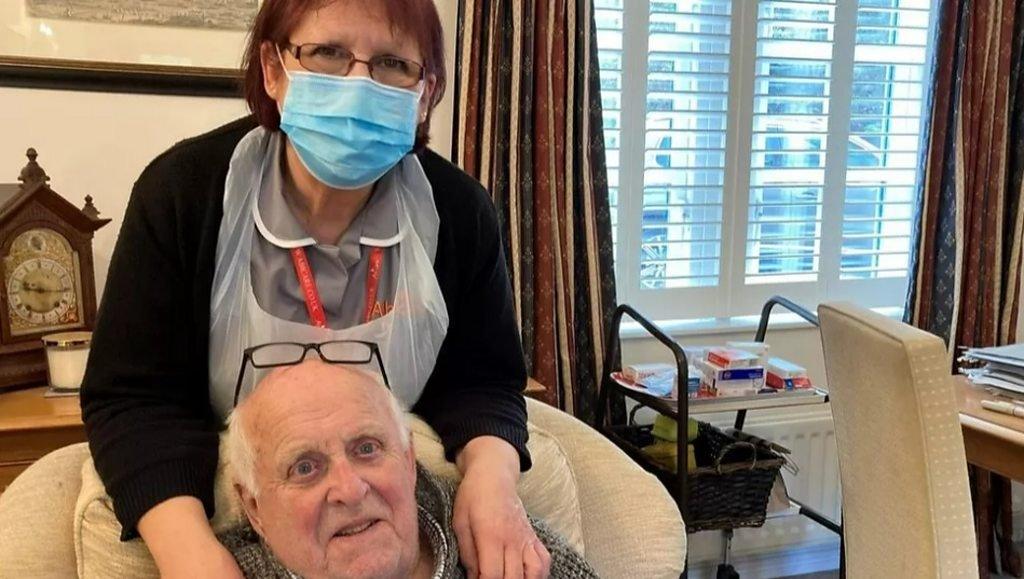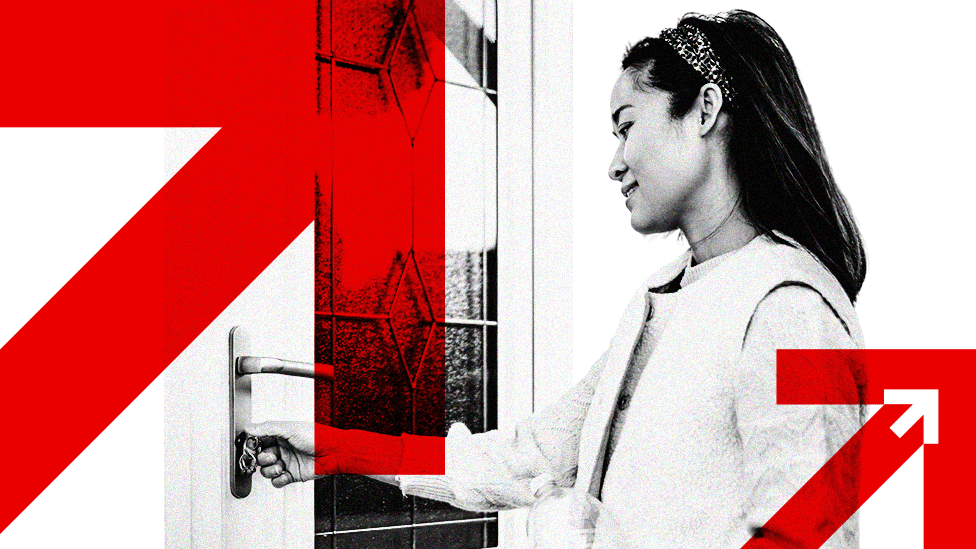Wiltshire and Swindon taxes to rise as services cut
- Published
Taxes for local services across Wiltshire are expected to rise from April - with warnings many areas will still face cutbacks.
Wiltshire and Swindon councils, local towns and parishes, as well as the police and fire service are expected to approve higher taxes.
But as inflation pushes up costs, tens of millions of pounds in savings still need to be found.
Swindon council is calling the challenge "unprecedented".
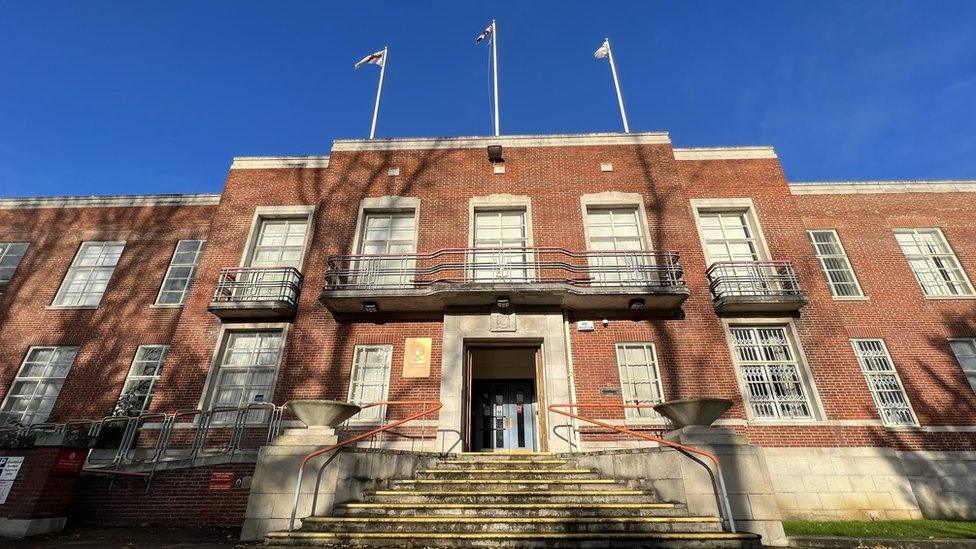
Large spending cuts are expected at Swindon Borough Council
Where your money goes
All these services come under one bill - your council tax.
The bulk of it goes toward either Swindon Borough or Wiltshire Council, but smaller proportions go toward other local services, through what is known as the 'precept'.
The totals will be finalised by mid February, with the increases taking effect from April.
All-in, an average sized home here can expect to pay around an extra £100 a year from April - but the amount you are charged varies hugely depending on the the size of your home, whether you are on certain benefits, and which part of the county you live in.
The main councils
Our large councils - Wiltshire and Swindon Borough - run the vital obvious local services like your bins, road maintenance, and council houses.
They also run many libraries, and in Wiltshire's case the leisure centres too.
But the bulk of what they spend actually goes toward services for the most vulnerable in society - through adult social care, and children's social services.
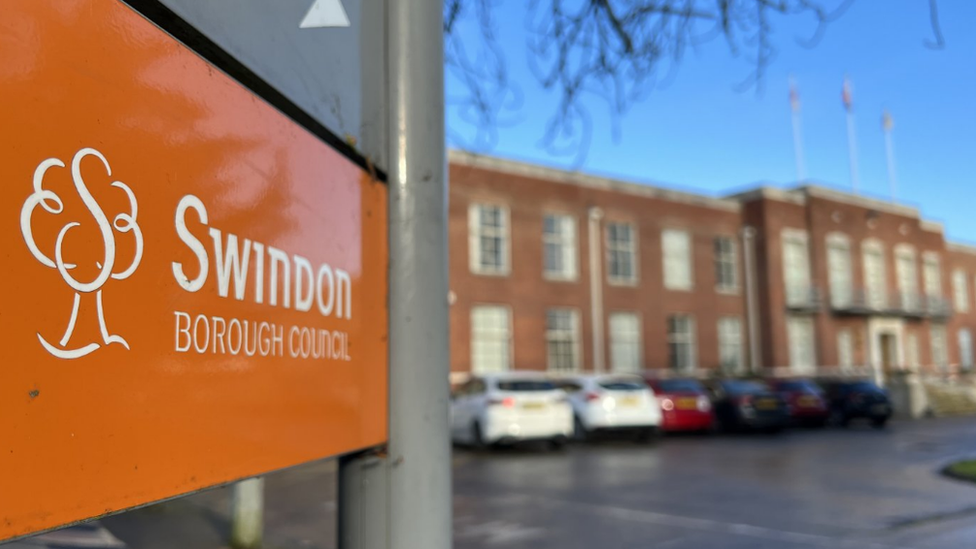
Swindon Borough Council had a £38m budget gap, and is looking to save a record £26m next year
They are both expected to raise council tax by more than normal this year, 4.99% - the maximum allowed without a referendum.
Households are grouped based on size into council tax bands A-H, with Band D considered the average benchmark.
The Band D rise for Wiltshire Council amounts to an extra £81 and in Swindon an extra £76 a year.
Even after the tax rise Swindon Borough Council is facing a "completely unprecedented" set of savings, said Keith Williams, the Conservative in charge of finance.
"We have to find savings of £26m next year, which is the single biggest saving we've ever had to make in one financial year," he said.
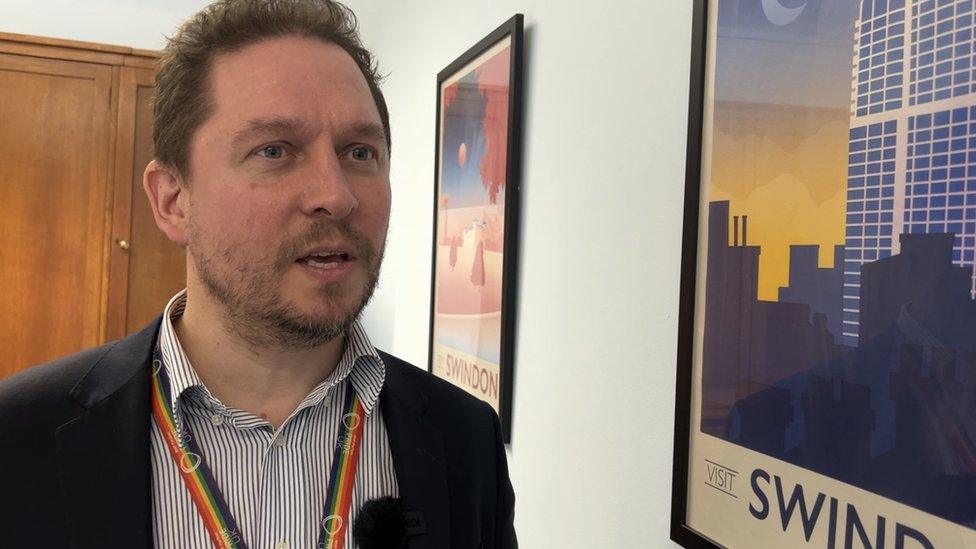
Councillor Keith Williams warned local council tax will "almost certainly" rise by the full 4.99%
Around 50 existing jobs will be cut, expect changes to make aspects of social services cheaper, some street lights will be dimmed or turned off to save money, Sunday parking charges are likely to be brought in to raise funds.
The opposition Labour party called the finances "dire", with leader Jim Robbins previously warning "there isn't a way of keeping things going without people seeing cuts to services".
The neighbouring Wiltshire Council is also facing tens of millions of pounds in savings - but its much larger size means the scale of the spending cuts is less severe.
The opposition Liberal Democrats called Wiltshire's tax plans "another hammer blow" to residents finding it tough, but Conservative leader Richard Clewer said the extra cash will go to services "people need to do their day to day lives" which in some cases "quite literally are life or death to people".
Both councils finalise their budgets mid-February.
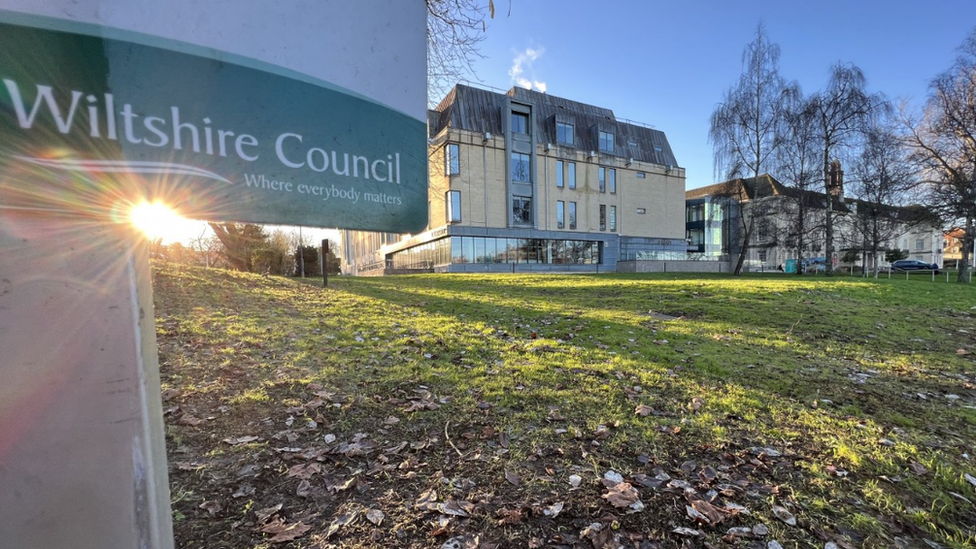
Wiltshire Council's leisure centres and libraries would be at risk if council tax wasn't going up this Spring.
The super-local councils
Across Wiltshire and Swindon there are hundreds of smaller councils - the towns and parishes.
They are increasingly responsible for super-local services like parks, playgrounds, community facilities and the general tidiness of an area.
Any increases may only amount to a few pounds a year for many, but it adds to the wider picture of rising bills across the board.
The picture varies hugely across the county. Some smaller parishes are avoiding any increases. Others, like South Swindon Parish Council, have this week agreed a 4.99% rise.
Trowbridge Town Council is opting for a rise closer to inflation, 10.1%.
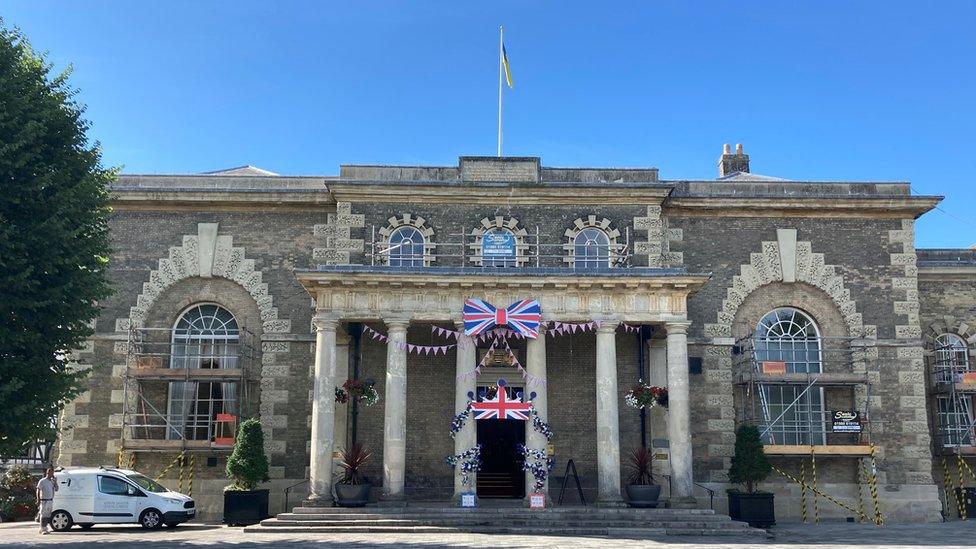
Salisbury City Council claims it needs the 44% tax rise after its own bills for energy insurance and maintenance shot up
Salisbury City Council also falls into this category, and has been criticised for introducing a 44 percent rise on its share of council tax this April - that is more than £100 extra per year for a typical home - while also finding savings in its funding for the arts.
Police and Fire
Funding for the police is split between cash from central government and local taxes.
Wiltshire's Police and Crime Commissioner is responsible for deciding how much to charge for the force's share of council tax, and has been consulting on the possibility of increasing bills by either £10 or £15 for typical homes - a rise of up to six percent.
"I need more officers, if I don't push up the precept I'm not going to be able to do that," said PCC Philip Wilkinson, who warned that without the extra cash of a tax rise: "I'm not going to be able to recruit the numbers that the Home Office tells me I have to recruit".
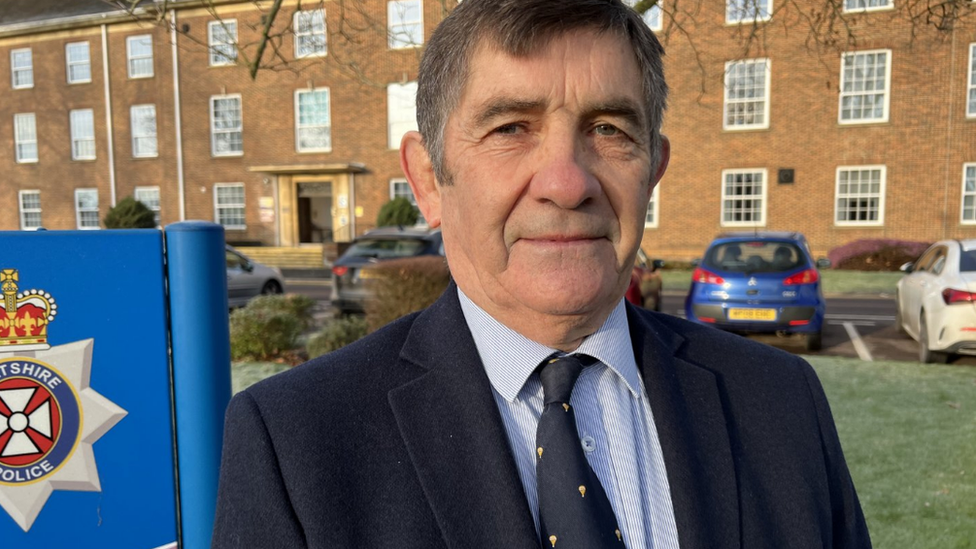
Wiltshire's Police Commissioner says the force is one of the lowest funded in the country
But even with the rise in place, after inflation he warned Wiltshire Police would still be left needing to find £3.4 million in savings next financial year.
The Dorset and Wiltshire Fire Service also raises funds through the council tax, currently to the tune of around £80 a year for typical households - its budget papers have yet to be published but are expected to recommend a small percentage increase once again.

Follow BBC West on Facebook, external, Twitter, external and Instagram, external. Send your story ideas to: bristol@bbc.co.uk , external
- Published27 June 2024
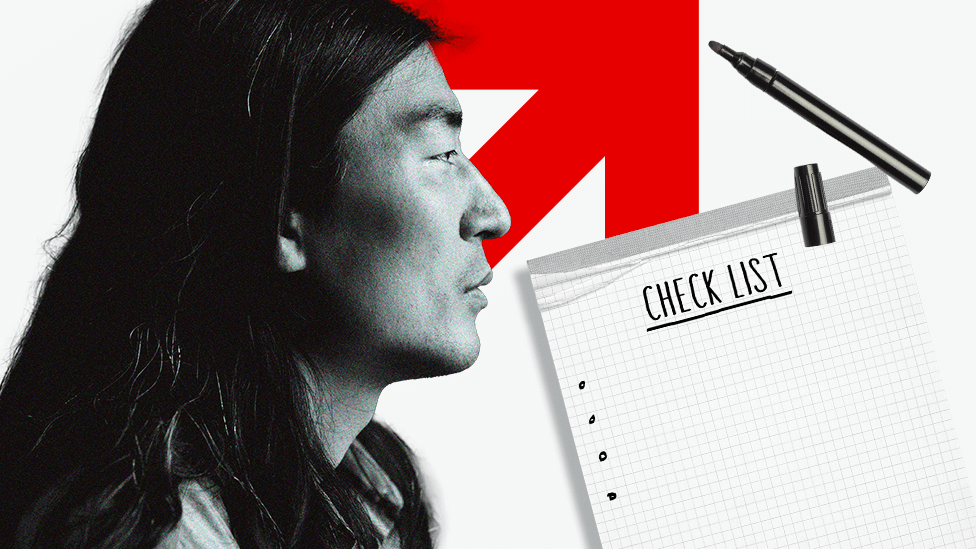
- Published10 January 2023
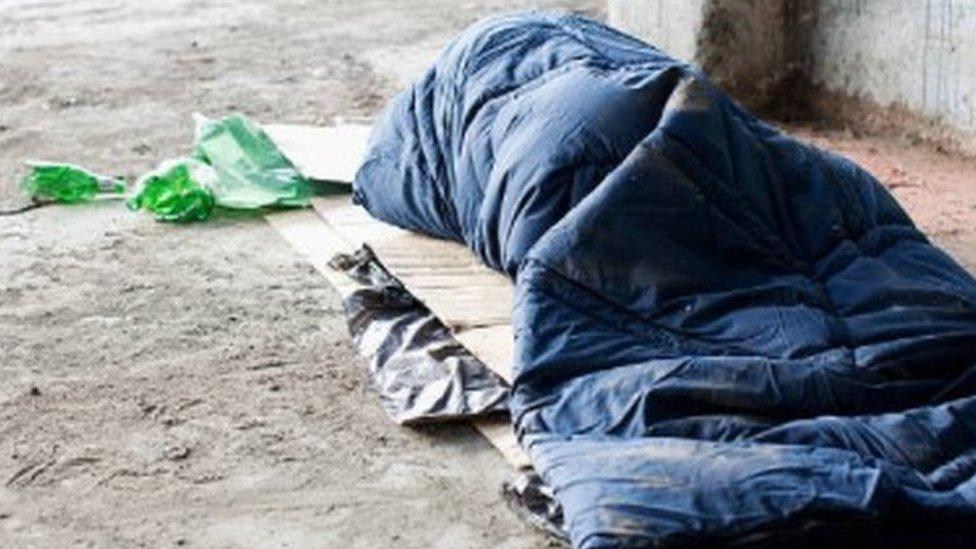
- Published24 November 2022
